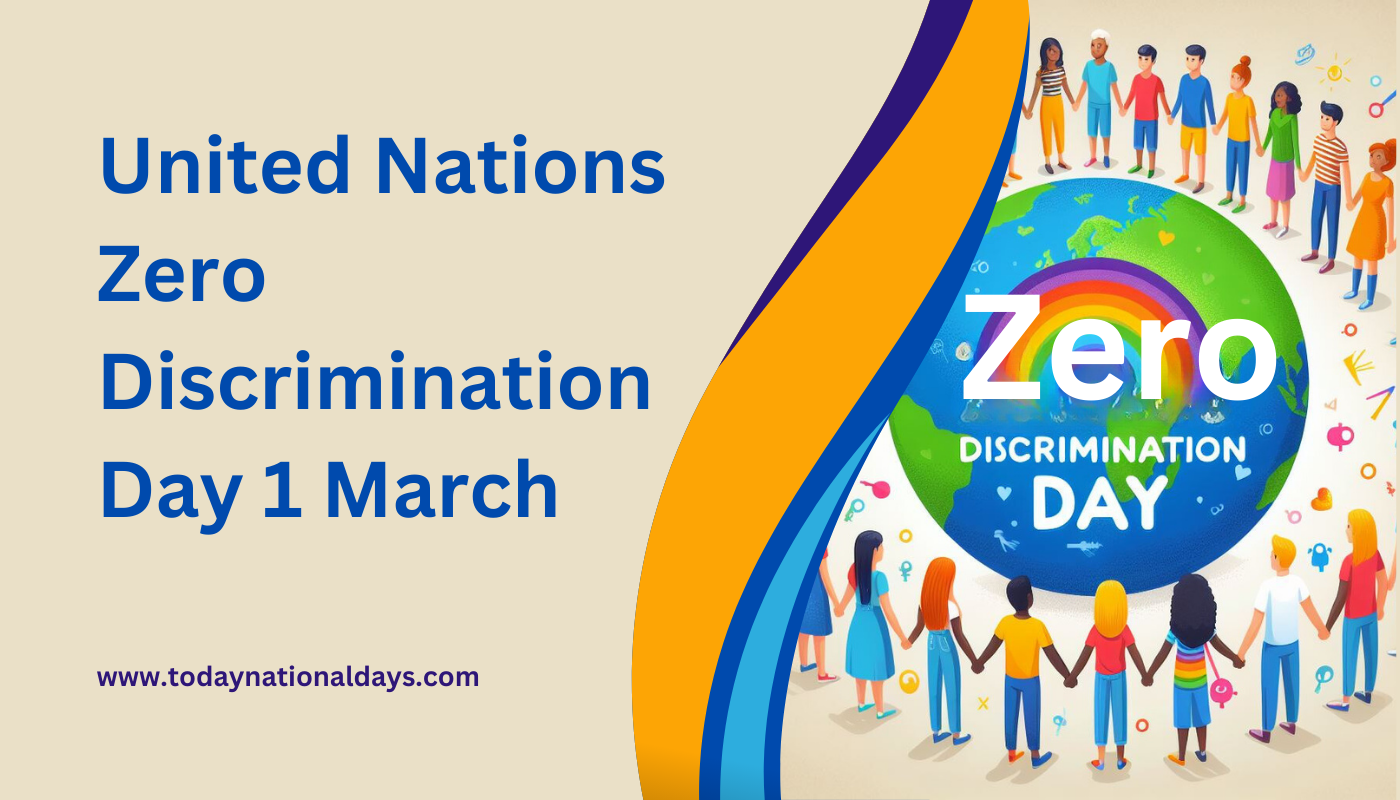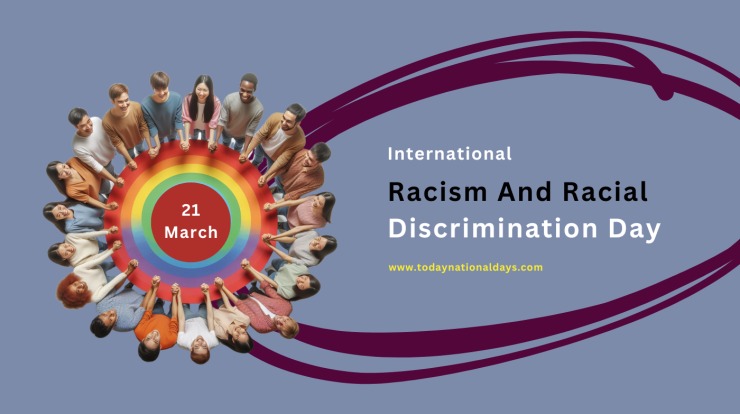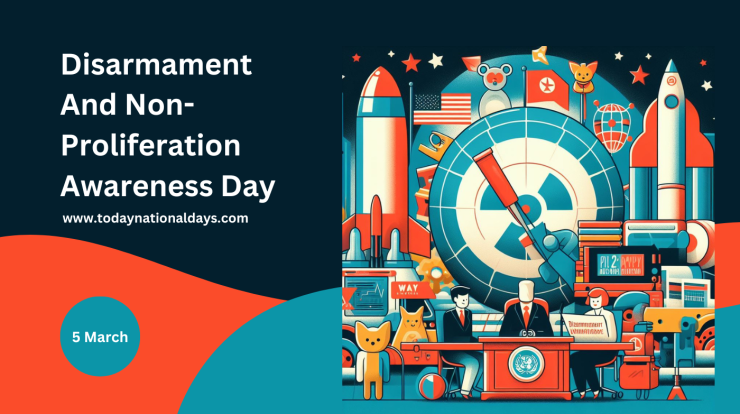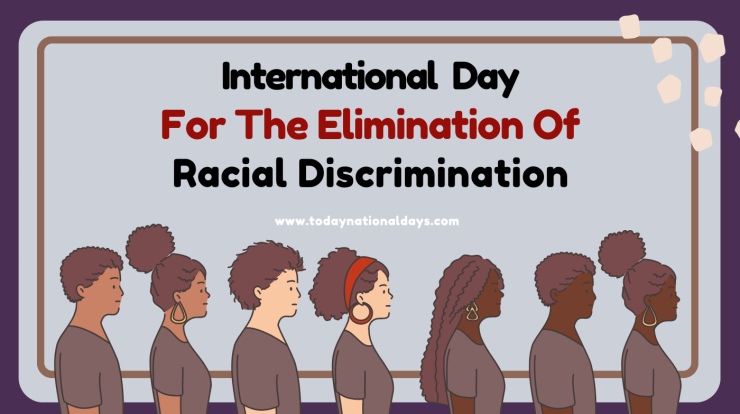
Zero Discrimination Day 1 March, acknowledged by the United Nations and celebrated globally with other international organizations. It was inaugurated on March 1, 2014, by Michel Sidibe, the Executive Director of UNAIDS, following a key event in Beijing on February 27, 2016.
Zero Discrimination Day: Why Is It Important?
Zero Discrimination Day 1 March 2022 focuses on the urgent need to tackle global inequalities. These inequalities span across various aspects such as wealth, gender, age, health status, employment, disabilities, sexual orientation, substance addiction, gender identity, ethnicity, religion, and beliefs.
On March 1, Zero Discrimination Day highlights how we can all learn about and promote inclusiveness, empathy, tolerance, and, most importantly, the need for change. This day aims to advance equality before the law and in practice across nearly all UN member countries.
History of Zero Discrimination Day
UNODC advocates for addressing the HIV-related struggles of marginalized groups, like drug users and inmates, who face stigma and discrimination daily. This discrimination not only affects their access to healthcare and support but also reflects broader societal attitudes.
It leads to significant disparities in HIV prevention and treatment, highlighting the need to confront prejudice and promote human rights at all levels.
How Is Zero Discrimination Day Recognised?

- On March 1st, Zero Discrimination Day, we affirm everyone’s entitlement to live a full and rewarding life, treated with dignity.
- Zero Discrimination Day fosters a global movement of solidarity aimed at eradicating all types of discrimination.
- Organizations like UNAIDS, dedicated to combating intolerance against individuals living with HIV/AIDS, pay special attention to this significant day.
- In 2017, the UN Development Programme honored LGBTI individuals living with HIV/AIDS who face harassment.
- The butterfly serves as the symbol for Zero Discrimination Day 1 March.
- Many people often use the butterfly symbol to express their stories and visuals, aiming to eliminate discrimination and promote positive growth.
- On March 1st, 2014, the UNAIDS Executive Director established Zero Discrimination Day in Beijing, following the launch of UNAIDS’ Zero Discrimination Campaign on December 1st, 2013, also recognized as World AIDS Day.
World Overview: Zero Discrimination Day
- To truly defeat AIDS, we must address the socioeconomic inequalities that contribute to its spread. Additionally, we need to support further scientific advancements that meet the specific needs of women, girls, and those living with or at risk of HIV.
- AIDS remains the primary cause of death for women aged 15 to 49 worldwide.
- To achieve the goal of ending AIDS by 2030, we need to eliminate gender-based violence, discrimination, and vulnerability. It’s crucial to ensure that women and girls have equal access to education, healthcare, and employment opportunities.
- We must transform our cultures to uphold basic human rights, ensuring that no one is marginalized or treated as inferior.
- Fighting AIDS requires tackling all forms of discrimination.
- We can’t achieve sustainable development or create a better world for everyone if people lack the opportunity to live with dignity.
- In today’s interconnected world, societal inequalities affect us all, regardless of our backgrounds or origins.
Conclusion Of Zero Discrimination Day 1 March
Zero Discrimination Day highlights the inequalities that prevent people from living fulfilling lives. It urges governments to eliminate all forms of discrimination.
FAQs About Zero Discrimination Day 1 March
What Is Meant By Zero Discrimination Day?
March 1st is Zero Discrimination Day, dedicated to promoting dignity for all. Let’s foster inclusion, compassion, and peace to create positive change. Stand with us to advocate for a discrimination-free world and celebrate diversity!
How Did Zero Discrimination Day Start?
Day Zero Discrimination started out with an emphasis on HIV, advocating for the rights of those living with and affected by it. Education and promotion play a crucial role in supporting these communities.
Why Celebrate Zero Discrimination Day?
The day aims to promote equality in both law and daily life across UN member countries. It began on March 1, 2014, with a major event in Beijing. UNAIDS’ executive director Michel Sidibé led the event on February 27 that year.






